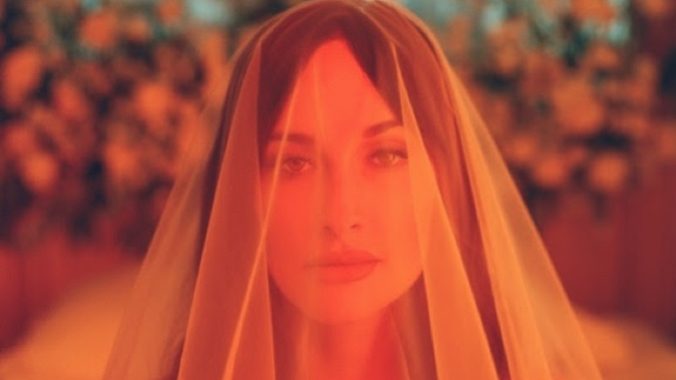Golden Hour 5 Years Later: A Complicated Classic
Kacey Musgraves’ masterpiece, now a more challenging listen, changed music for the better

If Golden Hour was a human, they would barely be old enough for kindergarten. But Kacey Musgraves’ third original studio album, released on March 30, 2018, has already graduated to classic status.
The story behind the album has likewise enshrined itself among American music lore. After charming public radio hosts, progressive country fans and Willie Nelson with her dry humor and cannabis habits, plus a Christmas record to boot, the talented Texas-born country singer was ready to test some new waters, so she famously began trying out psychedelics, and her third eye was forced open.
She then went into the studio with collaborators Daniel Tashian and Ian Fitchuk to record an experimental pop country album that, perhaps as a surprise to them all, became one of best pop country albums ever made. And, later, in a rare moment when the Grammys got it right, Musgraves took home the trophy for Album of the Year.
Pulling from disco, Americana, psychedelia, pop and soul, the album uses unexpected elements like AutoTune, synthesizers and syncopated basslines to create something we had never heard before. Musgraves didn’t just “go pop”—she created a new bridge between pop and country, stretching over an ocean of other American musical styles. Banjo met beats, and nothing was ever the same.
The release of Golden Hour helped launch a whole western-meets-whimsy movement. While the resurgence in country stoner vibes isn’t all due to Musgraves (hi Margo Price!), Golden Hour helped popularize the aesthetic and usher in a campy subculture that’s feminist and queer-friendly. The rise in cowgirl culture also helped pave the way for country crossovers like Lil Nas X’s “Old Town Road” and outspoken collectives like the Highwomen.
Not only did Golden Hour signify a shift in music culture, but it also told a somewhat magical love story.
Yet, it’s impossible to listen to Golden Hour now without considering the fate of that love story. Musgraves and her onetime husband are no longer together. Listening to Golden Hour after learning this changes the whole experience.
Written in the afterglow of falling in love with fellow country singer Ruston Kelly, Golden Hour traces every stage of a relationship, from past flames dying out and the inbetween days to the first “Butterflies” with a new person and ensuing bliss. In 2018, it was so easy to imagine Musgraves living happily ever after with her person. How could the artist who wrote “Oh, What A World” and “Love Is A Wild Thing” be anything but?
-

-

-

-

-

-

-

-

-

-

-

-

-

-

-

-

-

-

-

-

-

-

-

-

-

-

-

-

-

-

-

-

-

-

-

-

-

-

-

-








































